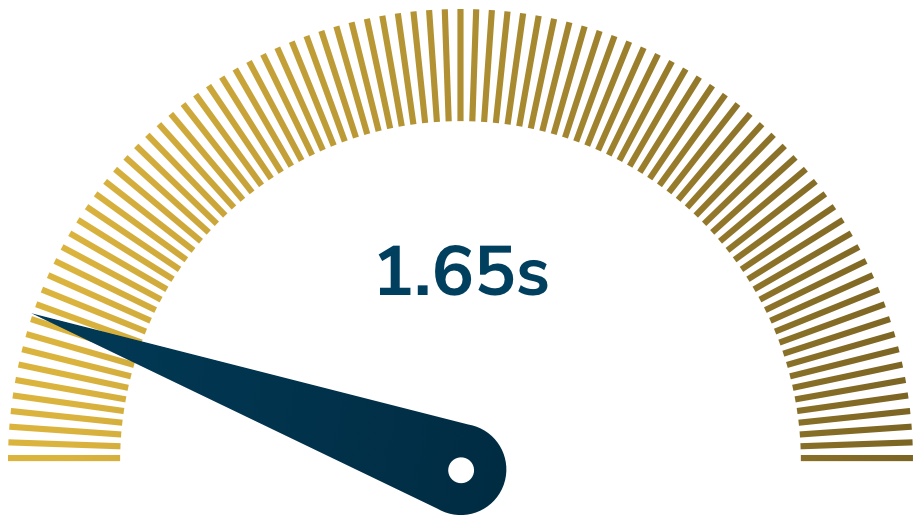Written by
Jeremy Hickman
Jeremy Hickman, WordPress Website DesignerRead it in 10 minutes
Topics
About the author
Jeremy Hickman is a freelance Web Designer and WordPress expert from West Sussex in the UK. With over 20 years' experience as a web designer, he also has a good level of development, marketing and SEO knowledge across both WordPress and HubSpot platforms.
Follow Jeremy Hickman on InstagramWe all know that having a good website is essential for your business. It’s your online shop window and your potential customers will form their early opinions about you from your website. It is essential to create a good impression.
You know nothing about website design, and could hire a professional to do the job for you. What if you could do it yourself for a fraction of the price? It sounds attractive and the cost savings look useful. Why would you want to avoid DIY website builders? If this sounds like you, read on.
What is a DIY website builder?
A DIY website builder is a platform that lets you make a website without any technical or design knowledge. A key feature is drag-and-drop functionality. This allows anyone to easily put together a website by pulling pre-built components onto the page with their mouse.
There are many options including the well-known providers such as WIX, Squarespace and Shopify. Some hosting providers such as IONOS also now offer this option, too. This can look attractive as it gives the impression that anyone can build a website themselves. You don’t need any specific knowledge: Just drag and drop pre-built elements into place and add your own content. You will see numerous options for colours, fonts, different functions and layouts.
So, what’s the problem with this and why should you be worried? All is not as it seems underneath what appears to be a nice looking website. There are many reasons why you should not tackle the process of building a website yourself:
- A DIY website will be generic and won’t stand out
- Poor performance and slow loading times
- You (and your content) are tied to your provider
- Poor SEO support
- Ineffective content
- Lack of technical support
Reasons to avoid DIY website builders
1. A DIY website will be generic and won’t stand out
Sites built this way are put together from pre-designed components, and they tend to look formulaic and similar to other sites built in the same way. You’ll find plenty of scope to alter colours, fonts, images, and add your own text. However, you won’t have any ability to add bespoke design flourishes that will set your brand apart.
As well as finding more customers, one of the most important functions of your website is to build your brand. This means that you’ll need your site to exactly match your brand. You might want the freedom to place your logo in the most effective place, or need to arrange your content in a way that communicates your brand story.
You will find it very difficult to achieve these factors effectively without the help of an experienced web designer. A professional will bring a wealth of knowledge in areas such as user experience and marketing techniques.
2. Poor performance and slow loading times
You will be impressed by the numerous functions and elements available within the drag-and-drop editor. However all of these features are included in the code that makes up your site. This is true even if you don’t use all of the features available to you. Your website code will be bloated, inefficient, and take up huge amounts of space on the server.

Why should I care about this, you ask? The problem is that all the extra code will slow down your site. This matters because statistics show that nearly half of all users expect a website to load in less than 2 seconds. Further, over a third of all users will abandon a site completely if it takes too long to load. The average page load speed of sites appearing on Google page 1 search results is 1.65 seconds. This is what you’re up against, and why you should avoid DIY website builders. A slow loading site just won’t perform for you.
A custom-designed site which has been professionally made will only include the elements you need. This means that the site will load much more quickly using efficient code. Your users will thank you for this, and are far more likely to engage with your site.
3. You (and your content) is tied to your provider
Once you’ve built your drag-and-drop site you’re tied to the platform you’ve built it in. You’re also nearly always locked in to their own hosting, too. This can be much more expensive than you initially expected.
A factor that is often overlooked is that you will have to learn a proprietary system when building the site. This knowledge is not transferable to other systems you might use in the future. If you take the time to learn something, you’ll want that knowledge to be useful in the future. This alone is a good reason to avoid DIY website builders. Your knowledge is tied to that one particular platform, which you might never use again.
Furthermore, you won’t be able to easily move your website to a new provider. This is because you’re unlikely to own the underlying code.
If you might decide to cut your losses and move to a website created by a professional designer, you’ll find your content can’t be easily exported from the DIY site. This can complicate the move, and increase your costs.
With a custom website built to your specific requirements you will own the code. If you own the code you will be able to move the site to different hosting providers in the future. This allows you to be agile in response to costs and service provision.
4. Poor SEO support
No matter how good your website looks, it won’t help your business at all if no one can find it. Search Engine Optimisation (SEO) is the process of fine-tuning your website to help it rank more highly in search engines such as Google. DIY website builders don’t offer great potential with your SEO.
Most DIY builders don’t allow Google to verify your website in their Webmaster Tools. This will harm your ability to rank in search results. You may also not be able to integrate Google Analytics with your site. Without this information you will be unable to see key statistics that will tell you how your site is being used. This means that you can’t work out how effective your site is, and what changes you need to make to improve it.
SEO is a complex area and needs specialist knowledge. You’re also aiming at a moving target because Google regularly updates its algorithms and parameters that will affect your ranking. Unless you are experienced in this area it is unlikely that you will be able to effectively master SEO optimisation yourself, especially when you consider how limited the SEO capabilities of DIY website builders are. Working with an experienced web designer or SEO specialist is essential if you want your website to be found by your target audience.
5. Ineffective content
Following on from the previous point, you need content that is directly informed by your SEO considerations. There are so many pitfalls you can walk into when working on your own. Unless you know what you’re doing, you’re unlikely to make the right choices. Your content needs to speak to Google and the other search engines effectively.
There’s a careful balance to be achieved. You need to match your message to potential customers with techniques that will help your site rank. When you use a DIY website builder you’ll be responsible for making all the content decisions yourself.
Poorly written content can make your website look unprofessional and less likely to engage with your audience. Consider the most important H1 heading on each of your pages. How many times do you see ‘Welcome to my website’ in that important position on a homepage. This heading should actually be a keyword-rich statement. Not knowing this can cost you dear, and is another important reason why you should avoid DIY website builders.
When you work with a professional, they can help you with your content and share their marketing expertise. They will help you write for both your audience and search engines. This in turn will increase the potential for success of your website.
6. Lack of technical support
If something goes wrong, you might need some technical support or advice. You’ll need to turn to the customer support team. This is often via online chat before you eventually get to speak to a real person by phone, typically overseas. In the worst case, you’ll need to open a support ticket and explain everything in a written note. You’ll then need to await an reply that will hopefully address everything you wanted to know.
You will undoubtedly wish you had bought a custom-made site. If you had you’d have the ability to speak directly to the web designer. Any issues can then be resolved by the person who actually built your site.
Watch out for covert drag-and-drop websites
Finally, beware of rogue ‘web designers’ who sell themselves as professionals. They actually don’t know how to write code or make a bespoke website for you. They will use a drag-and-drop theme editor such as Elementor, Fusion, WP Bakery or similar. Sometimes they may even modify a third-party theme that they’ve downloaded from somewhere else.
The client is often unaware of what they’ve paid for and the web designer will present it as a quality site with a price tag to match. This will lead you to believe you’ve bought a quality piece of work. The website will look ok, but you will unwittingly fall victim to the disadvantages of a DIY website.
How to detect that you might not be getting a custom site:
- Not being provided with a PDF mock-up and an opportunity to request design changes before the site is built;
- The web designer gives the impression a feature you request could be difficult to make. This probably means it’s not in their drag-and-drop kit-bag;
- All the websites in the web designers portfolio look similar;
- They have only been in the industry for 5 years or less.
Conclusion
A DIY website might sound really attractive if you have a modest budget and you’ve time to tackle it yourself. This approach is often a false economy and you will end up paying for it in the long run.
Talk to an experienced web designer to see what can be achieved within your budget. This is worthwhile even if it means that the site has to be fairly small to start with.
A small site can be expanded later when you have more to spend. It’s far better to have a concise, well designed, well built, and well optimised website. Your main focus should be for your potential customers to be able to find you!
Get in touch today to talk about your bespoke website project.

